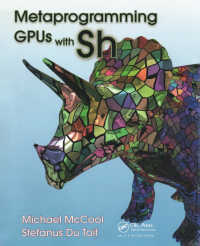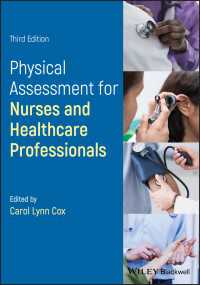Description
This edited volume comprises an insightful collection of international autoethnographies from doctoral candidates in the field of applied linguistics, narrating and analyzing their student experiences to problematize and challenge the dominant and oppressive cultures of academia.
Through 12 select contributions, the book examines the intersection of identity work and emotional labor in the doctoral student journey, sharing insights into the potential of autoethnography for self-reflection, community building, and healing in doctoral studies. Contributors examine their doctoral journeys through personal narratives and testimonials to understand their own experiences, agency, identity, and emotions, encouraging current or former doctoral students to engage in the critical reflection of their own experiences. Chapters are divided into four themes: interrelating multiple identities, navigating and negotiating in-betweenness, engaging emotions and wellbeing, and establishing support systems.
Offering unique perspectives from a global spread of Ph.D. candidates, this book will be highly relevant reading for researchers and prospective or current doctoral students of applied linguistics, language education, TESOL, and LOTE. It will also be of interest to those interested in higher education, dissertation research, and autoethnography as a method.
Table of Contents
1. Doctoral students’ identities and emotional well-being in applied linguistics: Introducing the collection of autoethnographies Bedrettin Yazan, Ethan Trinh, and Luis Javier Pentón Herrera Part I: INTERRELATING MULTIPLE IDENTITIES 2. Navigating the academy with imposter syndrome as a first-generation queer student: Lessons learned James Coda 3. Playing the academic game: Identities, socialization, and discourse community Xiao Tan 4. Negotiating my scholar identity: Jumping through hoops and hurdles Juyeon Yoo Part II: NAVIGATING AND NEGOTIATING IN-BETWEENNESS 5. Exploring my in-betweenness as a growing transnational scholar through poetic autoethnography Ufuk Keleş 6. The becoming of transcultural pracademics Soyoung Sarah Han, Seongryeong Yu, and Yun-Chen Yen 7. A poetic narrative autoethnography on transnational identity: Tumbleweed Oksana Moroz Part III: ENGAGING EMOTIONS AND WELL-BEING 8. An Autoethnographic Account of Faculty-on-Student Abuse: Walking on Eggshells Farah Ali 9. Rethinking the role of emotional dissonance in catalyzing professional identity development Eunhae Cho 10. Navigating the first year of doctoral study: Developing a researcher identity and other lessons learned outside of the program handbook Carlo Cinaglia Part IV: ESTABLISHING SUPPORT SYSTEMS 11. Writing for publication as doctoral students: Challenges, opportunities, and lessons learned Jia Gui, Shu-Wen Lan, and Luciana C. de Oliveira 12. Re-envisioning academic competition: Sharing leadership in co-authorship, co-publication, and building collective wisdom Iuliia Fakhrutdinova, Nasiba Norova, and Vannessa Quintana Sarria 13. The benefits of community in the face of disaster: Struggling to success Lucian Rothe Part V: MOVING FORWARD 14. Poetic conversations: Moving forward with autoethnography in applied linguistics Ethan Trinh, Bedrettin Yazan, and Luis Javier Pentón Herrera 15. Afterword Bedrettin Yazan







